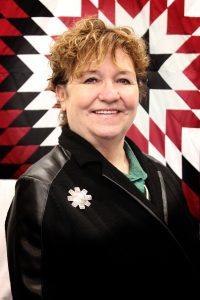
BRANDON, Man. – An internationally recognized Brandon University (BU) researcher in the area of Indigenous health and the law says she sees troubling trends in her ongoing study on the health of Indigenous inmates.
Yvonne Boyer, the Canada Research Chair in Aboriginal Health and Wellness at BU, is in the early stages of a study examining the health care that Indigenous prisoners receive in the Canadian correctional system and whether their Aboriginal and treaty rights are being breached. She says that since beginning her research in January, she has found an alarming lack of adequate mental health care and addictions counselling, corresponding with high rates of suicide.
“There’s a lack of understanding about the symptoms of mental illness and the behaviours that are associated with mental illness,” Boyer said. “The correctional officers may respond with increased security measures rather than any appropriate crisis response. For women this is even worse. We have women, especially Aboriginal women, who don’t have culturally appropriate programs, and they’re unlikely to receive proper mental health care when they’re incarcerated.”
Boyer is also disturbed by conditions faced by transgender inmates. Corrections officials in Ontario and British Columbia have recently begun to place transgender inmates in facilities with others of the gender they identify with; but Boyer said in federal prisons, where transgender women are incarcerated with men, the situation is frightening and dangerous.
“They’re in absolute living hell because policies force them to be in an all-male institution where they’re subjected to cruelty by guards, they’re subjected to cruelty by the other inmates, and it’s an unsafe environment, which affects their physical and mental health.”
The Canadian Bar Association has funded the study, and Boyer received a letter of support from Canada’s Correctional Investigator, Howard Sapers. Boyer and the students assisting her are creating a database of their findings, which they hope will be finished midway through this year. She has agreed to write an article on this topic for the next book in the Women Who Care series, scheduled to be released by Pottersfield Press in late 2016. The next phase of her work, pending additional funding, will be a legal analysis of her findings.
Boyer has published extensively on the topics of First Nations, Métis and Inuit and the intersection between health and the law as well as Aboriginal and treaty rights and their constitutional protections.
Driving Boyer’s work is a desire to see that inmates get the care and support to which they are entitled while incarcerated.
“The whole concept behind prison is the removal of this human being from society. That’s their punishment; they’re not to be punished further,” Boyer said. “They should have equal access to health care once they’re in there, but they’re not treated the same. People have to speak up on behalf of the people who are powerless.”
Contact
- Brandon University
- communications@brandonu.ca
To receive any BU publication in an alternate format please contact Communications@BrandonU.ca
About BU
Success is built at Brandon University. Our growing, progressive campus welcomes a diverse and inclusive community that combines proud tradition with shared ambition. Through our excellence in teaching, research, and scholarship, we educate students to make a meaningful difference as engaged citizens and leaders. Join us at BrandonU.ca.